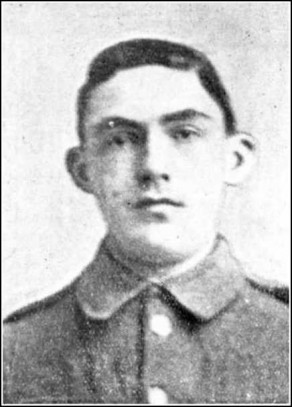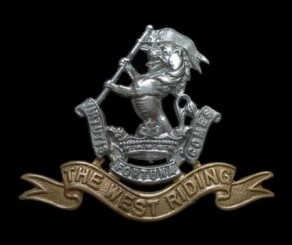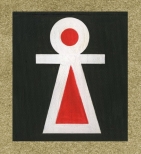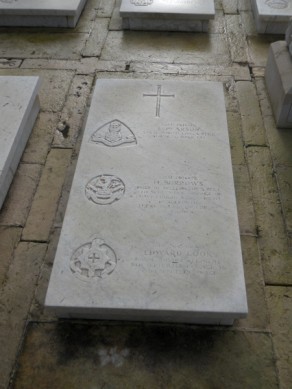
17 September 1915
8th DUKE'S HARD HIT IN GALLIPOLI - Letters from Earby Lads
Private H. T. Smith, of the 8th Battalion, Duke of Wellington's Regiment, in the Dardanelles, writing to his parents at 79, Colne Road, in reference to the recent severe fighting, says:- "We made an advance on the 22nd and 23rd, but I am sorry to say we paid very dearly for it. We were cut up terribly, and the worst part of it was that we lost a lot of Earby lads. Some of them I am afraid you will never see again. This is not civilised warfare, it is simply murder.
"It simply rained bullets and shrapnel, but I am still amongst the survivors. I was cut off from my regiment for three days, but I managed to fall in with the Munster Fusiliers, and I might here mention that my name has been sent in for burying dead under fire whilst with the Munsters. You will perhaps have heard of this before you get this letter. One of Clark's from Earby got a bullet through the eye, and the other is wounded; Burrows is wounded; Stockdale, Aldridge, Cross, and T. Hargreaves (Barnoldswick) is missing. Sam Rigby is alive, but taken prisoner, so you may tell his mother not to be down-hearted, because I am confident he is all right. Grassington Joe is injured, shot through the leg."
17 September 1915
AN ADVENTURE AT A WELL
Private James Walsh, another Earby soldier attached to the same regiment, writes:- "We have been in some stiff "doss," and have suffered heavily. We have 320 left in our Battalion out of 1,000. Our Brigade has done very well, but we have paid the cost. The General says he wishes he had all his Yorkshire lads back. Our brigade has been in front during all the big advances, and that is a big honour. I am afraid H. Burrows is badly, wounded. I am doing very well now on bully beef and biscuits and tea. Water is most difficult to get.
"I went out at five o'clock on Sunday morning the 22nd, to try and find water for myself and pals and found some about 200 yards away. Before five o'clock the same afternoon there were about 80 of our men shot down going to that well and we could, see them all. It was rotten. We had a service on the beach last night and we sang the hymn 'Lead Kindly Light.' It takes a good deal to move me but that did it. Just as I am finishing this letter H. T. Smith has come in after being missing three days."
Mrs. Burrows, Brook Terrace, mother of the Private H. Burrows, referred to above, received an intimation a week ago that her son was in hospital at Malta.
24 September 1915
BURROWS - On a date not known, in hospital at Malta, as a result of wounds, Pte. Herbert Burrows, 8th Battalion Duke of Wellington's West Riding Regiment, aged 20 years.
24 September 1915
EARBY SOLDIER'S DEATH AT MALTA
The death of Pte. Herbert Burrows, of the 8th Battalion, Duke of Wellington's Regiment, was officially communicated to his mother, Mrs. Rachel Burrows, 3, Brook Street, Earby, on Sunday morning. In the letters from other Earby soldiers published last week, reference was made to the dangerous character of his wound - he having been shot through the head, and the fact that he was in hospital at Malta.
Pte. Burrows, who was only 20 years of age, joined the Army shortly after the outbreak of hostilities, and was drafted to the Dardanelles with the 8th Battalion about three months ago. He was a native of Wigan.
15 October 1915
AN EXHORTATION TO EARBY ELIGIBLES - THE LATE PTE. H. BURROWS
In a consolatory letter to his mother (Mrs. Burrows, 3, Brook Street, Earby) on the death of her son, Private Herbert Burrows, who was killed in the Dardanelles, Private Ernest Burrows, cyclist despatch rider with the West Riding Division in France,
writes:-
"It is a trying time for us all, but we must try to look beyond the grave and trust that God has taken him to be where there is no war. There are many who have suffered far more than we have. Only the other day I was talking to a lad of 15 who had lost both father and mother as a result of the war. A German shell had killed them both.
I remember going into a shop a little while ago where the mother showed me a little girl of four years who had a big scar on her face and a piece of flesh cut away just above the knee, through being hit by a splinter of shell. The husband had been killed, and the mother had had to leave her own home and is now a refugee in another part of the country. When one sees poor little children like these they seem to say without speaking, 'Won't you help us?' And I fancy I can hear them calling to those still at home who are fit, but have not yet offered their services in what we are all agreed is a just cause. Much as we shall miss poor Herbert we have the satisfaction that he died doing his duty, and we all feel proud of him because he offered what help he could in order to protect those who could not protect themselves.
If ever I get back there are one or two of my old mates who will get to know what I think of them. I know they can't all go, but there are some who are doing nothing at all to help; many of them are single and their parents have plenty coming in without them. These are they who, when the innocent mothers and children of France and Belgium call for help, as good as tell them to help themselves. Though we mourn the loss of our Herbert, I thank God that his answer to the call was 'yes.' Christ said 'Greater love hath no man than this, that he lay down his life for his friend.' We neither of us enlisted because we delighted in war, but because we believed the cause just, and, like Herbert, I am willing to do my best in whatever I may be called upon to do.
I have had letters from mates, who are single and fit in every way, who have not yet enlisted. Some wish me the best of luck, and although I have nothing against any of them, it seems to me that their behaviour is like that of a man who stands on the canal bank and watches another drown, saying, 'I hope you get out all right,' instead of trying to get him out. The best way to increase one's luck is by coming and doing their bit and helping to bring the war to a successful end."
In a postscript the writer adds:-"I had just finished the letter when I received the local paper. I see that Herbert's friends say he was shot in the head while fetching water for his parched pals, and I couldn't help feeling a lump in my throat when I read that he had been killed while trying to help others. Dear Herbert. He has set me a good example of self-sacrifice which I will do my best to copy. It hurts me to think there are so many who won't help the lads who have done so nobly. There are more wanted, and I ask the lads of Earby and district to enlist in order to help those who have helped others."











No comments yet.